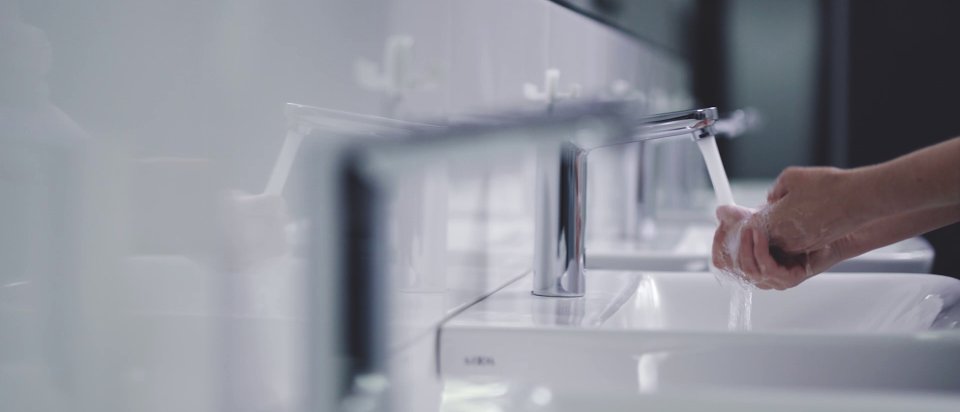
BASIC RULES FOR EVERYDAY HYGIENE
Basic hygiene practices help to make daily coexistence more pleasant—be it hand hygiene, coughing and sneezing etiquette, or toilet etiquette. In particular, the small yet important subtleties of hygienic habits can prevent pathogens such as bacteria, viruses or fungi from transmitting from one person to another. We have put together some tips on everyday hygiene practices for you.
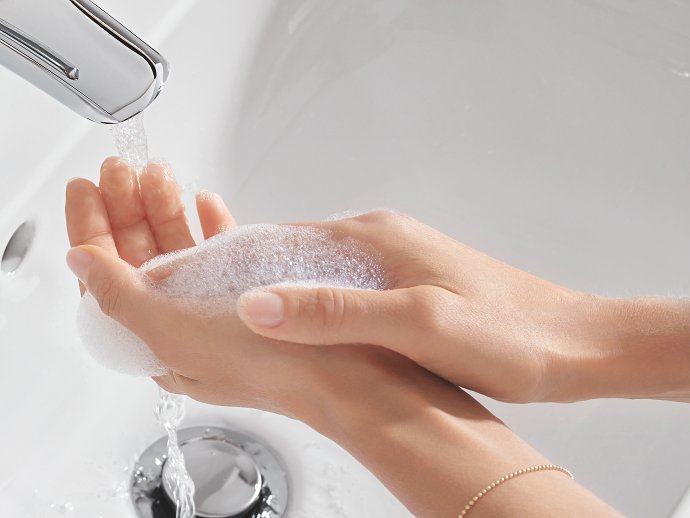
WASH HANDS REGULARLY
Our hands encounter countless objects on a daily basis, such as door handles and handrails on public transport. However, it’s possible that people with a cold or other illness could have touched these objects beforehand. This makes it even more important that we cut off these possible routes of transmission by washing our hands regularly and thoroughly for about 20 seconds. Hand washing is the cornerstone of daily hygiene—for both ourselves and those around us.
The NHS explains that germs can be easily transmitted to objects and other people via our hands. However, washing your hands properly removes dirt, viruses and bacteria, which helps prevent illnesses such as flu or food poisoning from spreading to others.
Therefore, the NHS recommends to always wash your hands:
- when you get home
- after using the toilet or changing a nappy
- after blowing your nose, sneezing or coughing
- after touching animals, including pets, and after cleaning their cages
- before and after handling raw food
- before eating or handling food
- before and after treating a cut or wound
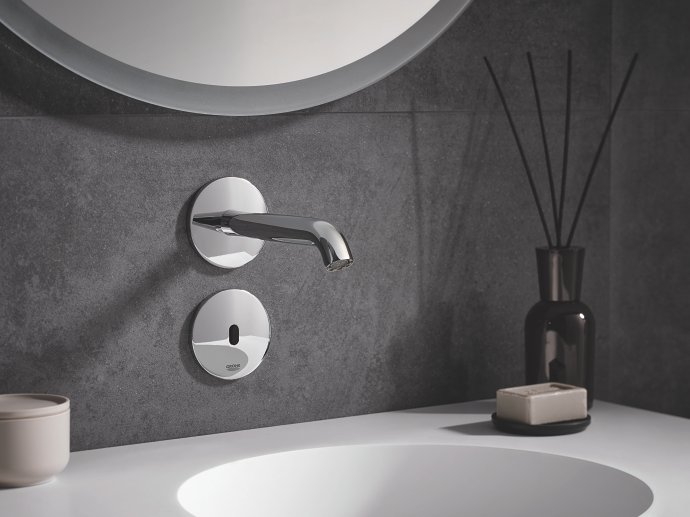
GROHE tip: Sensor-controlled taps are especially useful. These allow you to wash your hands without having to touch the tap. This way, you can help improve the level of hygiene in your bathroom.
Note: If you don’t have access to soap and water while out and about, you can also use hand disinfectant gels. Although they cannot replace hand washing, they can help you maintain basic hygiene.
OBSERVE COUGHING AND SNEEZING ETIQUETTE
If you are unwell, it’s vital that you do not spread bacteria or viruses. In order to prevent transmission to others via droplet infection, the NHS recommends that you adhere to the following rules when coughing and sneezing:
- Cover your mouth and nose with a tissue or your sleeve (not your hands)
- Immediately dispose of used tissues in a bin
- Wash your hands afterwards
KEEP YOUR DISTANCE
Another important hygiene rule is to keep at a distance from other people when you or someone else is ill. If you live with or care for a sick person, the NHS recommends trying to keep 2 metres away from each other, washing your hands regularly for at least 20 seconds, and observing the coughing and sneezing etiquette described above.
The best thing to do if you are ill is to avoid going out and rest at home until you feel better and are no longer contagious.
PAY ATTENTION TO HOUSEHOLD HYGIENE
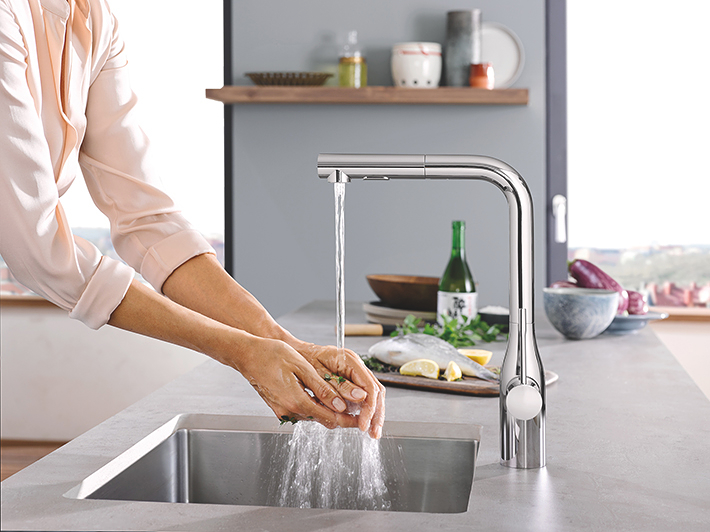
Whether it’s cooking, cleaning, laundry, or caring for your pets, there are also some rules for household hygiene that should be observed. Among other measures, the NHS recommends that you:
- focus your cleaning efforts on germ hotspots (e.g. kitchen and toilet), and clean them regularly after use
- clean baths and sinks frequently, and use disinfectant if they’ve been used by someone who’s ill
- use disposable cloths or paper towels when possible, and wash reusable cloths at 60˚c (140˚F) or disinfect them after each use
- ensure surfaces are clean before preparing food, and clean them again immediately after use
- use separate chopping boards for uncooked food (e.g. raw meat) and food that doesn’t need cooking
- wash and dry your hands after handling food, such as raw meat
- wash your hands after touching animals, their food, toys, cages or litter trays
Tips & Tricks
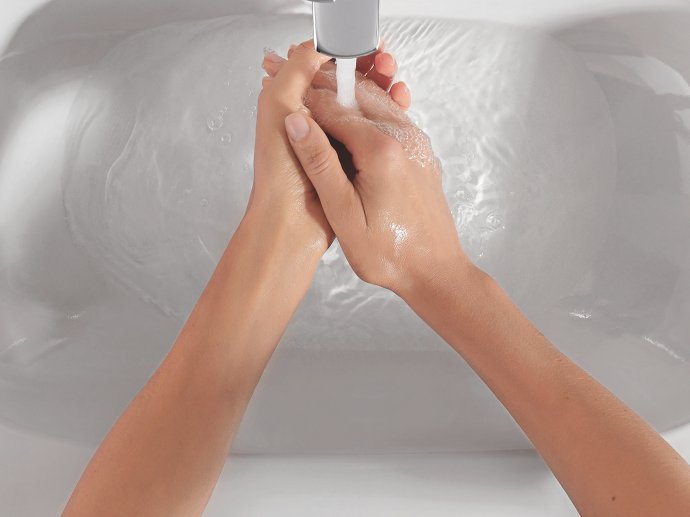
Tips for Keeping Your Hands Clean & Hygienic
Paying attention to proper hand hygiene is key to avoiding the transmission of germs. Our hygiene tips will help you do just that!
Read more here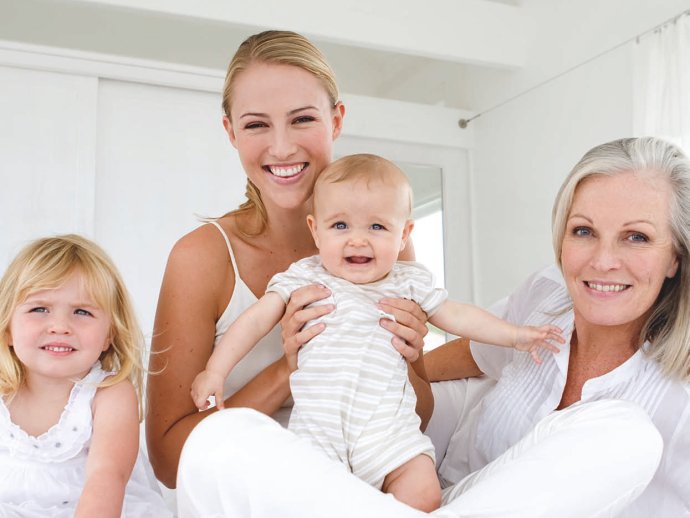
Hygiene Tips For
Everyday Life
By following simple rules for general hygiene, you can protect yourself and others. We have summarised the most important points.
Read them now!